Lessons from the National Indigenous History Month and Pride Month launch event
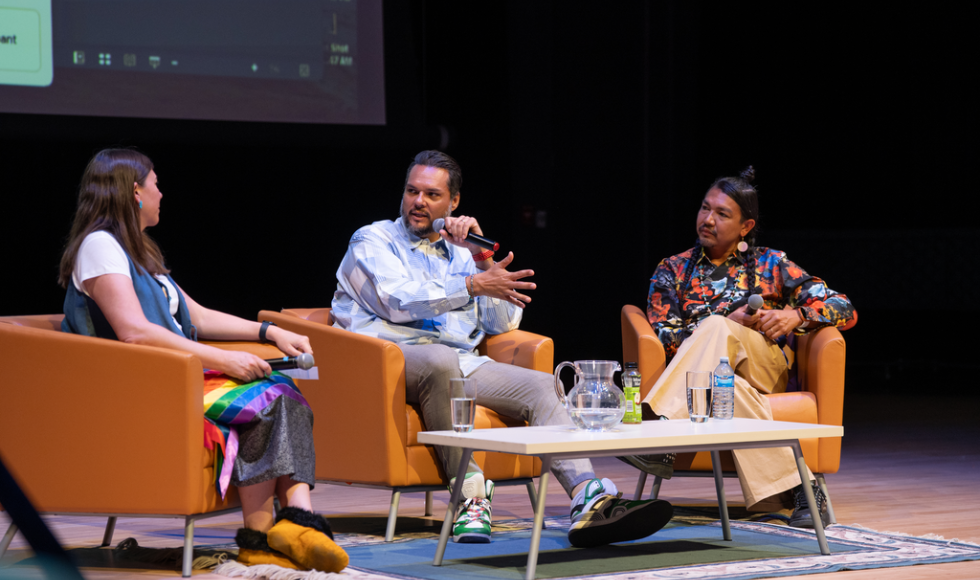
Anthony Johnson (middle) and James Makokis (right) during the event's Q&A session, facilitated by Kelly Gordon, Associate Director of the Indigenous Health Learning Lodge. (Photo by Georgia Kirkos)
Members of the McMaster community gathered at L.R. Wilson Hall on June 3 for the National Indigenous History Month and Pride Month launch event, featuring keynote speeches from James Makokis and Anthony Johnson.
Makokis and Johnson are best known for winning season seven of The Amazing Race Canada, the first two-spirit, Indigenous, married couple in the world to do so.
Their win made international news and sparked discussions about the importance of representation in media. They still get recognized in public because of The Amazing Race Canada, and as advocates for LGBTQ2S+ and Indigenous populations, use their platforms to raise awareness and create equal access for these communities.
Makokis is a Nehiyô (Plains Cree) family physician from the Saddle Lake Cree Nation in northeastern Alberta, and an international leader in Indigenous health and transgender health. Johnson has worked as a community outreach worker and is currently the coordinator of the midwifery program in Kehewin Cree Nation, promoting culturally safe health care. On the Amazing Race, they competed as “Team Ahkameyimok” (“Never give up” in the Plains Cree language).
Here are some of the main takeaways from their keynote addresses:
Allyship is action. Makokis referenced Beyoncé , whose allyship included making all of the washrooms gender-neutral on her Renaissance world tour. “We tend to over intellectualize things as a society and as academics and as people who have privilege and power,” Makokis said. But Beyoncé “just did it, because that’s what leaders do.”
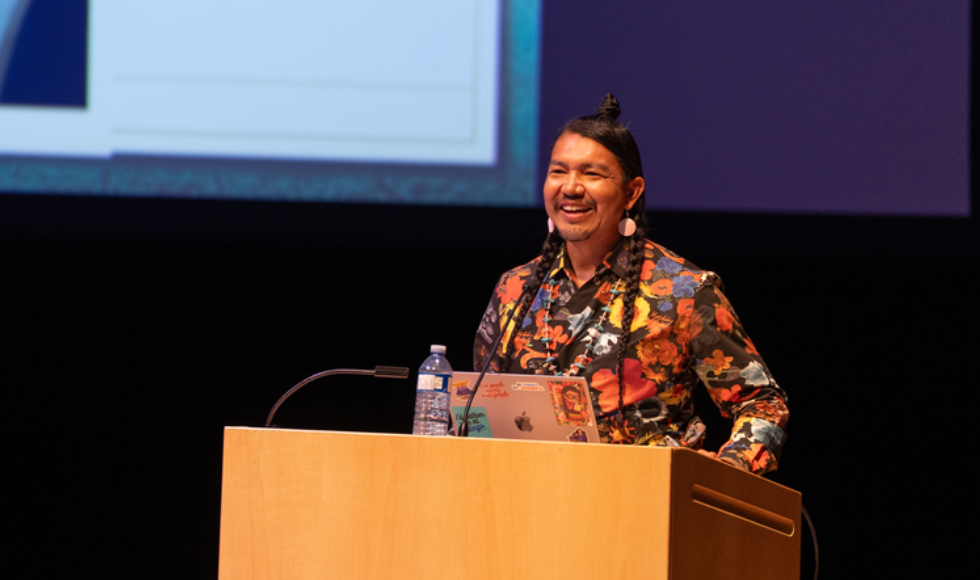
It’s important for us to be critical as people, as learners, and as citizens. Makokis noted that Canada is often lauded as a beacon of human rights, but oppression is still happening to racialized people, queer people, and Indigenous people, in many ways. “The first thing we can do is wake up as people to see what is happening,” Makokis said.
Learn about treaties from Indigenous scholars. “There’s a lot of misinformation and misunderstanding about the Canadian history in this country,” said Makokis. He gave the example of the King starting the throne speech recently with a land acknowledgment, which most people thought it was incredible. The event also included drumming, singing, and the president of the Assembly of First Nations (AFN).
But there was a lot to unpack within that, said Makokis: the AFN is a corporation, not a treaty rights holder. Treaty partners weren’t actually present. “We are so used to mediocrity that we accept this as the truth.”
You need to participate. Makokis talked about bringing colleagues from the Canadian Association of Emergency Physicians conference to a sweat lodge. “They had to be uncomfortable. They had to be in their T-shirt and shorts, sweaty with one another, be able to share at an emotional and heart level… [and] they said this has been the most transformational learning that I’ve ever had in Indigenous health.”
You can’t be what you can’t see. Quoting Michelle Obama, Johnson talked about representation in media, and what it meant for them to win The Amazing Race while wearing skirts and with Indigenous language in their bodies.
The first story Johnson ever saw about an openly out character was the film Philadelphia, where the main character gets AIDS, sues his employer for discrimination, and dies. It wasn’t until years later, at a queer bookstore in New York, that he found a book with positive images of transgender and non-binary Navajo warriors and realized that he had the right to be who he was.
To be queer or Indigenous is to have a political identity. “It was through the outfits we wore on television that we were able to generate messages around water, around missing and murdered Indigenous women, around queer issues, and it was because of the way that we demonstrated in plain sight that people were inspired,” Johnson said.
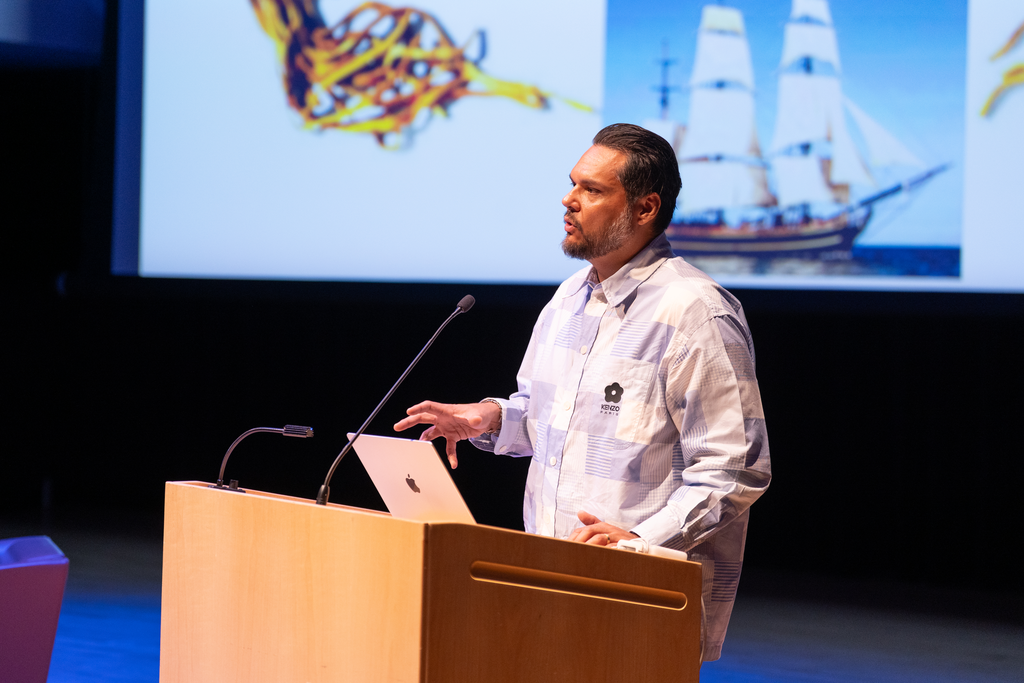
If you want to create change, get out of your comfort zone. “It’s only when you’re outside of your comfort zone that you begin to challenge conscious and unconscious bias,” Johnson said.
The good news is that our brains are neuroplastic. Meaning: you can change your biases. “The amazing thing about the brain and our bodies is that they are… shapeable,” Johnson said. “They are moldable and they can be transformed.”
The story that you tell yourself matters. That’s why “it’s important for young people to be exposed to different books and stories and movies and songs and areas and plants and sweat and teachers and people,” Johnson said. “What is the story that each one of you tells yourself about treaty, about Indigenous people, about resistance? Because allyship is the nice thing. But the hard part is resistance.”
You have some stories to listen to. “You have some songs to hear, you have some food to eat, you have some sweats to get hot in,” Johnson said. “We have to ask… why am I uncomfortable? What’s making me uncomfortable about this and how can I do my best to be better?’’
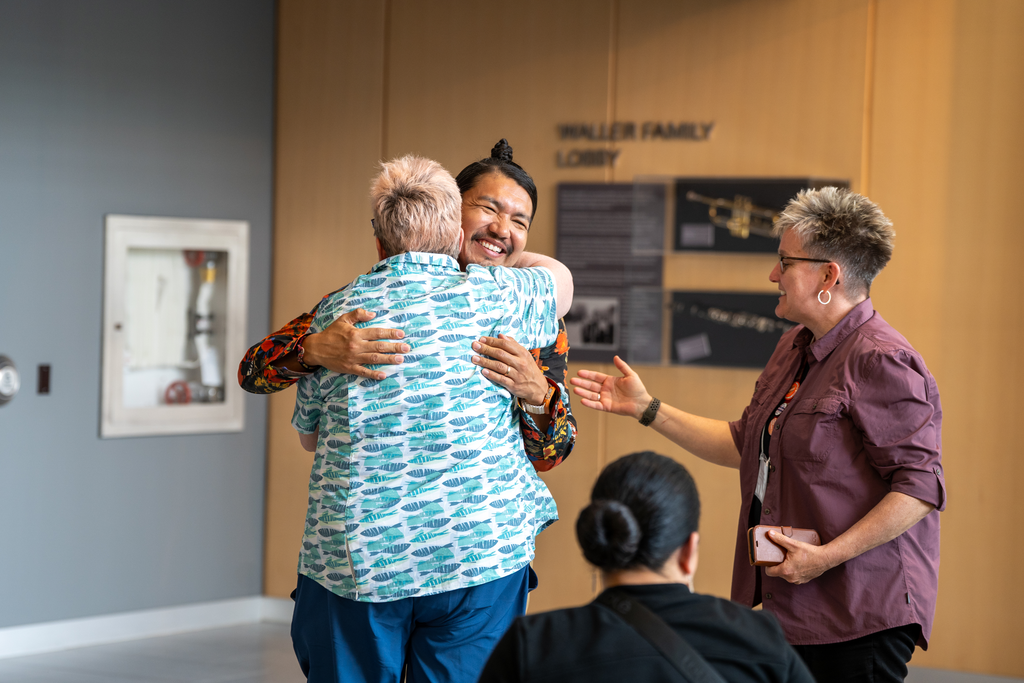
The event also included a traditional opening and closing ceremony, by Cari-Lynn Henhawk, from the Indigenous Health Learning Lodge, as well as remarks from senior leaders including Chrissy Doolittle, Cheryl Louzado, Wanda McKenna, Matheus Grasselli, Ryan Trepanier, Andrea Foster, and students Kiran Oberai and Donna Mahboubi. It was hosted by Ayokunnumi Osinowo, Employment Equity Consultant with Human Resources Services.
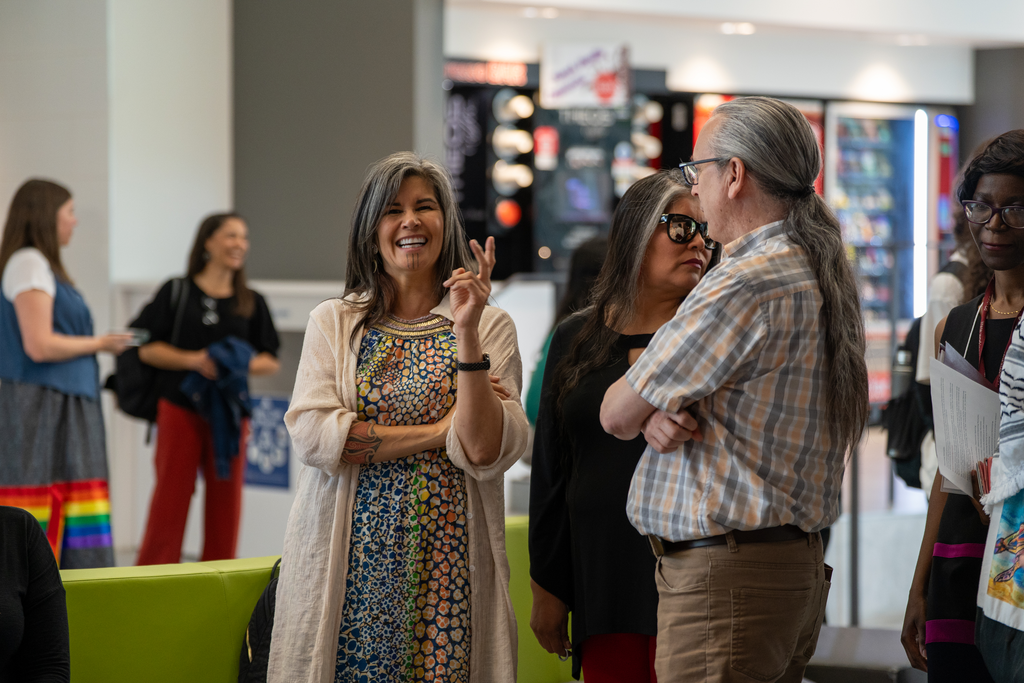
Check out more upcoming events for National Indigenous History Month and Pride Month at McMaster.


